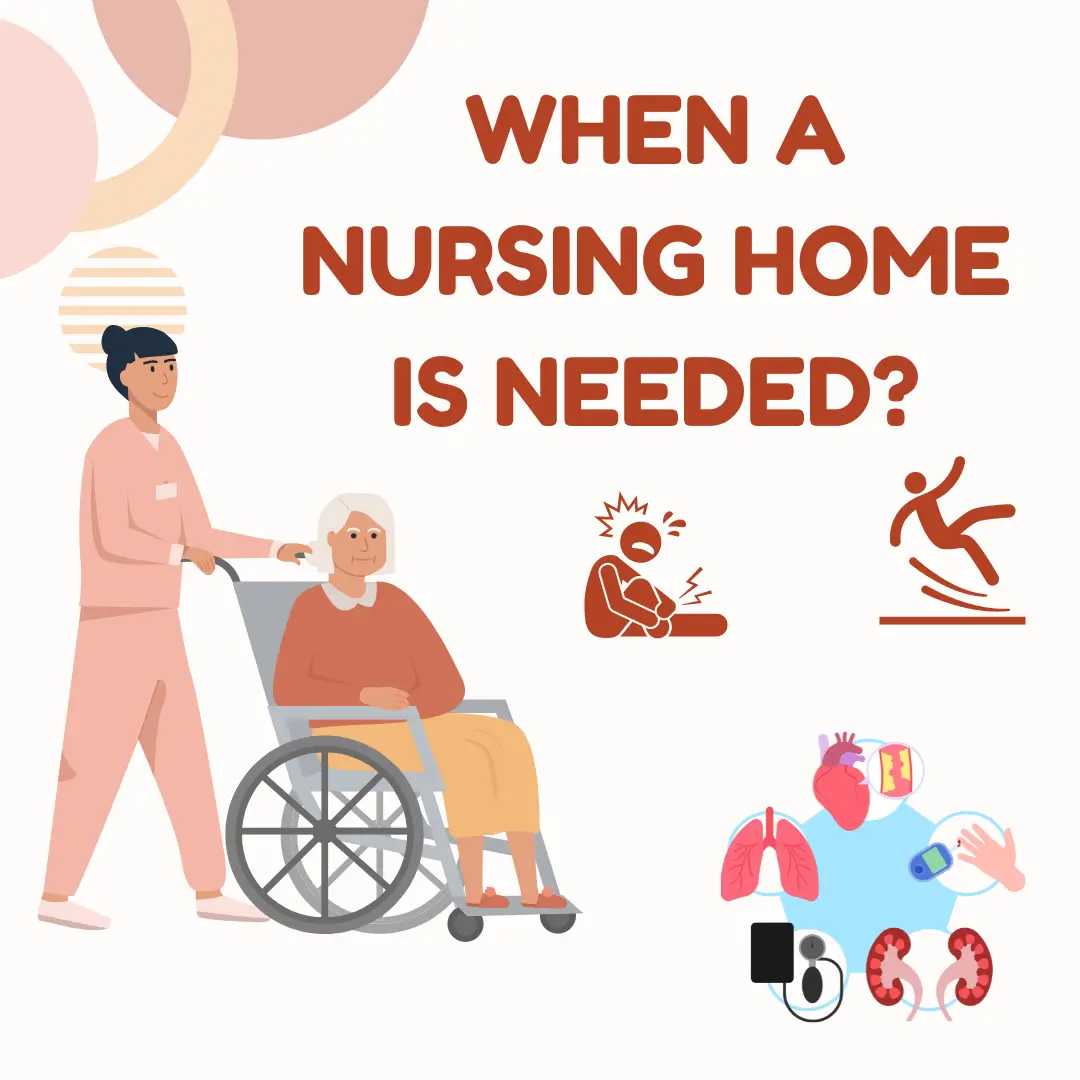When a Nursing Home Is Needed?
In the older ages, you may notice that your parents are not able to handle things on their own. In this regard, a nursing home can provide some necessary services such as medical observation and living conditions. However, it’s not easy to decide when a nursing home is needed and whether they are eligible for this. Qualifying for nursing home care depends on their individual needs and medical condition. Let’s understand these signs and criteria so you can make informed decisions for your aging parents.

How to Tell If Your Parent Needs a Nursing Home?
Each situation is unique, so decisions should be based on specific circumstances. Here are some general signs that might indicate it’s time to consider placing your parents in a nursing home.
If They Are Not Able to Take Care of Themselves
Do your parents need help in washing their bodies or putting clothes on and taking them off? Are you seeing that they are neglecting their grooming and personal cleanliness? If they need help with such simple chores like these, then you might need to admit your parents to a nursing home. Symptoms like not caring for themselves, and issues with weight loss or gain that are related to diet also point towards them needing more assistance than can be administered at home.
Increased Risk of Falls or Injuries
If your parents are falling often, such as falling off the stairs or the bed, and if they are more prone to falling than they used to be, then it means that they require a safer place with care and help, like a nursing home. This implies that they need some level of supervision and assistance to help avoid any mishaps and to promote their welfare.
They Often Forget to Take Necessary Safety Precautions
It is dangerous when your parents live alone because they might forget to switch off appliances and leave doors unlocked, which can lead to complications. Skilled nursing homes have staff on duty 24 hours at the front desk to enhance close supervision and support. These levels of support suggest that a nursing home may offer a safer climate in which these risks are reduced for the health of your parents.
They Need Constant Medical Treatment
As people age they are capable of getting severe illnesses such as diabetes, arthritis, heart diseases, respiratory problems, stroke, Alzheimer’s, or cancer. If your parent has one of these conditions, it would be more appropriate if they receive better care and attention in a skilled nursing facility.
They Commonly Forget to Take Their Medications
A large population of elderly people usually takes many medications in a single day. Often, the elderly have poor memory of when and how to take these medications as they get older. This becomes a problem especially when these drugs are needed for the treatment of serious diseases such as diabetes or hypertension.
If They Are Facing Issues with Toileting
If your loved one is struggling with reaching the bathroom or is having accidents such as bed-wetting, it is high time that you discuss the need to move them to a nursing home. Nursing homes offer individuals constant care. Through the care they receive in a nursing home, they can gain confidence and continue to feel independent when making decisions about their toileting needs.
They Use a Wheelchair and May Be Bedbound
If your parents use a wheelchair and they need to be lifted from the wheelchair to go to bed or to the washroom then they may need a lot of help. Nursing homes offer help with moving, going to doctors and dentists, and daily living tasks. In case the parent is bedridden, a nursing home will provide constant care for issues such as incontinence or bedsores.
Who Qualifies for Skilled Nursing Care?
Your parents are eligible for a nursing home if they have any condition that needs the supervision of medical or nursing personnel. It commonly includes handling long-term conditions such as COPD, cardiovascular diseases, or diabetes that may develop complications. If your parents have difficulty controlling these conditions on their own, they may need a nursing home. Even other than medical treatment, if your parent requires help with the activities of daily living including bathing and dressing, then also skilled nursing care could be suitable.

